Vancouver Seen A Century Ago
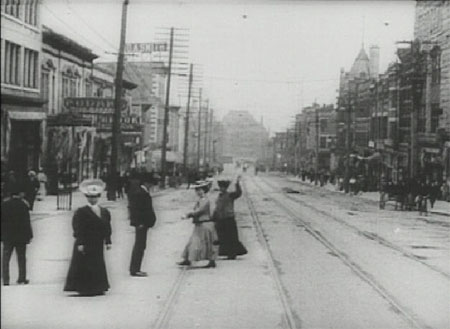
That friendly woman waving to us (left) is seen for a fraction of a moment in a film taken in Vancouver exactly 100 years ago. On May 7, 1907 a Seattle film maker named William Harbeck came up to Vancouver to make a movie. That six-minute, silent, black-and-white movie is the earliest we have of the city. It is a fascinating glimpse into the city’s past.
To make the film more widely accessible, the Vancouver Historical Society is working to package this unique film with an updated 2007 version of it. The two films, made a century apart, will be put onto a DVD called City Reflections: Vancouver 1907—2007. You’ll be able to see them, on a split screen, at the same time . . . travelling along the same streets at the same speed. More on that project toward the end of this article . . . and more on the remarkable fate awaiting William Harbeck.
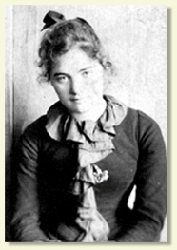
[Photo: BC Archives Detail of Call Number H-02813]
The BC Electric Railway Co. laid on a special streetcar, and Harbeck—his camera firmly bolted down—stood at the front. Then, hand-cranking the camera at a steady rate, he is off. The car rattles north along Granville Street from Georgia down to Hastings, turns east onto Hastings (the photo above shows the street just before that turn) and heads toward Carrall. Until 1922, we’re still driving on the left side of the street, remember. That fellow holding the little bag is hurrying to get out of our way.
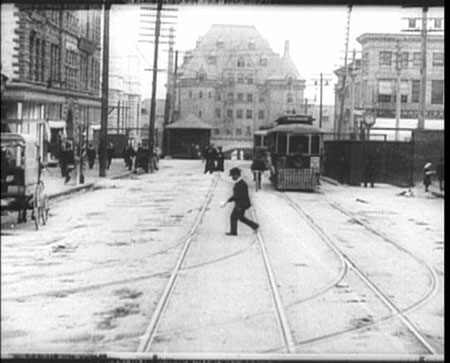
This little movie is packed with interest. At one point in its journey the streetcar passes 570 Granville Street. Up on the second floor of that building, according to the city directory of the time, was the studio of “Miss Emily Carr, artist.”
A long stretch
The film carries us along Hastings, then Carrall, Cordova, Cambie, Robson (all houses, not a shop to be seen) and Davie. The streets are boiling with people, horse-drawn carts and bicycles. (We see precisely one automobile along the route . . . and it’s parked.) The Vancouver of 1907 was a thriving, energetic city. The population was climbing rapidly, jumping from the 27,000 in the 1901 census to the 100,000 of 1910. We see in these flickering images a city that is in the process of quadrupling its population in 10 years.
Local historian John Atkin, whose neighborhood walks are rightfully famous here, is writing the commentary for the film, helped by fellow City Reflections historian Chuck Davis. Some short chunks of the movie are missing, not surprising after a century, but what’s there is exciting. It was thanks to Colin Preston, the CBC’s archivist in Vancouver, that we have this film.
The story of how it was found is an adventure in itself. A dozen or so years ago it was found with a pile of other ancient short films in the collection of a recently deceased Australian film buff. The people who found it screened it and, thinking it was an American city being shown, shipped it off to the Library of Congress in Washington, DC. They looked at it and said, “That’s not an American city. They’re driving on the wrong side of the street.” They decided, correctly, it was a Canadian city and forwarded it to the National Archives in Ottawa. Someone there watched it carefully and determined the city was Vancouver. The National Archives then set about the laborious task of restoring and preserving the film frame-by-frame. It wasn’t long before the CBC’s Colin Preston had a copy.
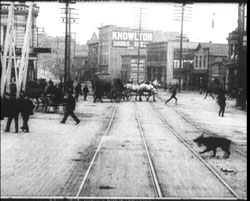
And not long after that, thanks to Colin, so did the Vancouver Historical Society. “Wouldn’t it be great,” the VHS asked itself, “to make a 2007 version of the film, going along the same streets at the same speed, then put both films onto a DVD?”
DVD coming!
The VHS will make the DVD available at a nominal cost this fall. You’ll be able to see the original film by itself, then the modern-day version, or run both split-screen at the same time to see the changes a century has brought to the city. But the DVD will have much more. VHS board member and City Reflections Production Manager Jim McGraw explains: “We see the DVD as a time capsule. Just as we in 2007 find the original film so fascinating, with its views of a completely transformed Vancouver, so Vancouverites of 20 years, 50 years, or 100 years from now will find the 2007 version fascinating. We’re going to include material from both centuries on prices and wages, on building styles and materials, on fashions, entertainment, the media and more. People watching our DVD a hundred years from now may be astonished to learn we could buy a house for just $800,000.”
The City Reflections project is costly. The non-profit VHS is appealing for financial assistance from individuals and firms to help make possible this unique look at Vancouver 100 years apart. Expenses include equipment, transportation, insurance, lawyers, editing time, printing and police (needed to block off some streets during the taping—although such disruption will be brief). More than $20,000 has already been raised from various sources. Many in the city’s film and television community have also contributed equipment or their time.
More than a dozen volunteers are working on the City Reflections project. Film industry veteran Mary-Lou Storey has been instrumental in working out the surprisingly complicated logistics of shooting on city streets. Ernst Schneider, one of our “techie” volunteers, has precisely timed out the 1907 film so the new version will match, and has been one of the crew advising on the technical equipment needed. Another is Jason Vanderhill, who also captured the images you see on this site and who has produced astonishingly attractive posters and postcards. Jason will do the design work for the package. Wes Knapp of the VHS’s City Reflections Committee says: “All contributors will be part of the film’s legacy, a time-capsule that takes us into the next 100 years. The DVD will be distributed widely, acknowledging all who have made this stunning DVD project possible.” And thanks to Andrew Martin, Researcher Extraordinaire in Special Collections at the Vancouver Public Library, for that engaging image at the top of the page. That waving lady would have had no idea we’d be acknowledging her gesture a century after she made it. Andrew, incidentally, has also done very extensive research on William Harbeck himself and that will be included on the DVD.
More info
If you’d like more information on how to become a supporter of Vancouver Reflections (contributions so far have ranged from $20 to $10,000) drop me a note at chuckdavis@shaw.ca.)
Harbeck’s fate
As for William Harbeck, he had one more interesting film assignment. While in Europe, he was hired by England’s White Star Line to record shipboard life during the maiden voyage of the company’s huge new liner. Those films however, were never to be seen. Harbeck was one of hundreds who lost their lives when the White Star Line’s Titanic sank on the night of April 14, 1912.
UPDATE: Harbeck’s film is now available on YouTube, courtesy of the Vancouver Historical Society. Enjoy!

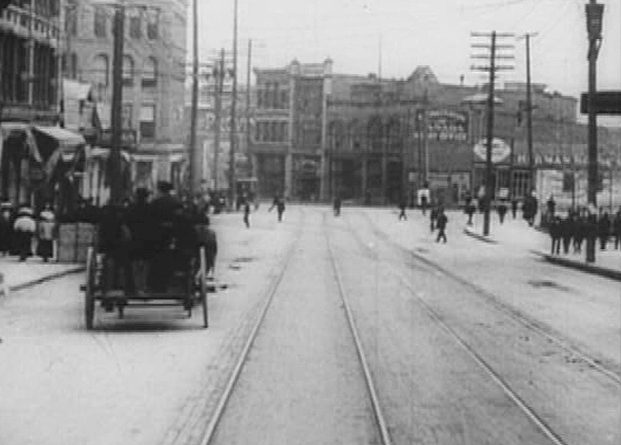
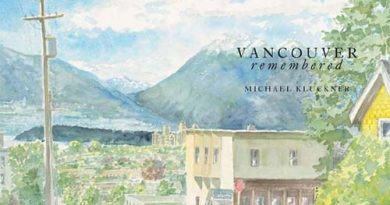
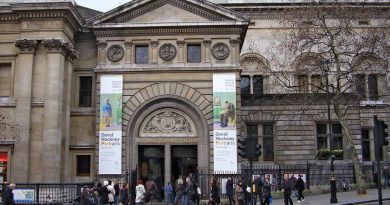
![Vancouver Coat of Arms [Image: Wikipedia]](https://vancouverhistory.ca/wp-content/uploads/2021/01/1024px-Coat_of_arms_of_Vancouver.svg_-390x205.png)